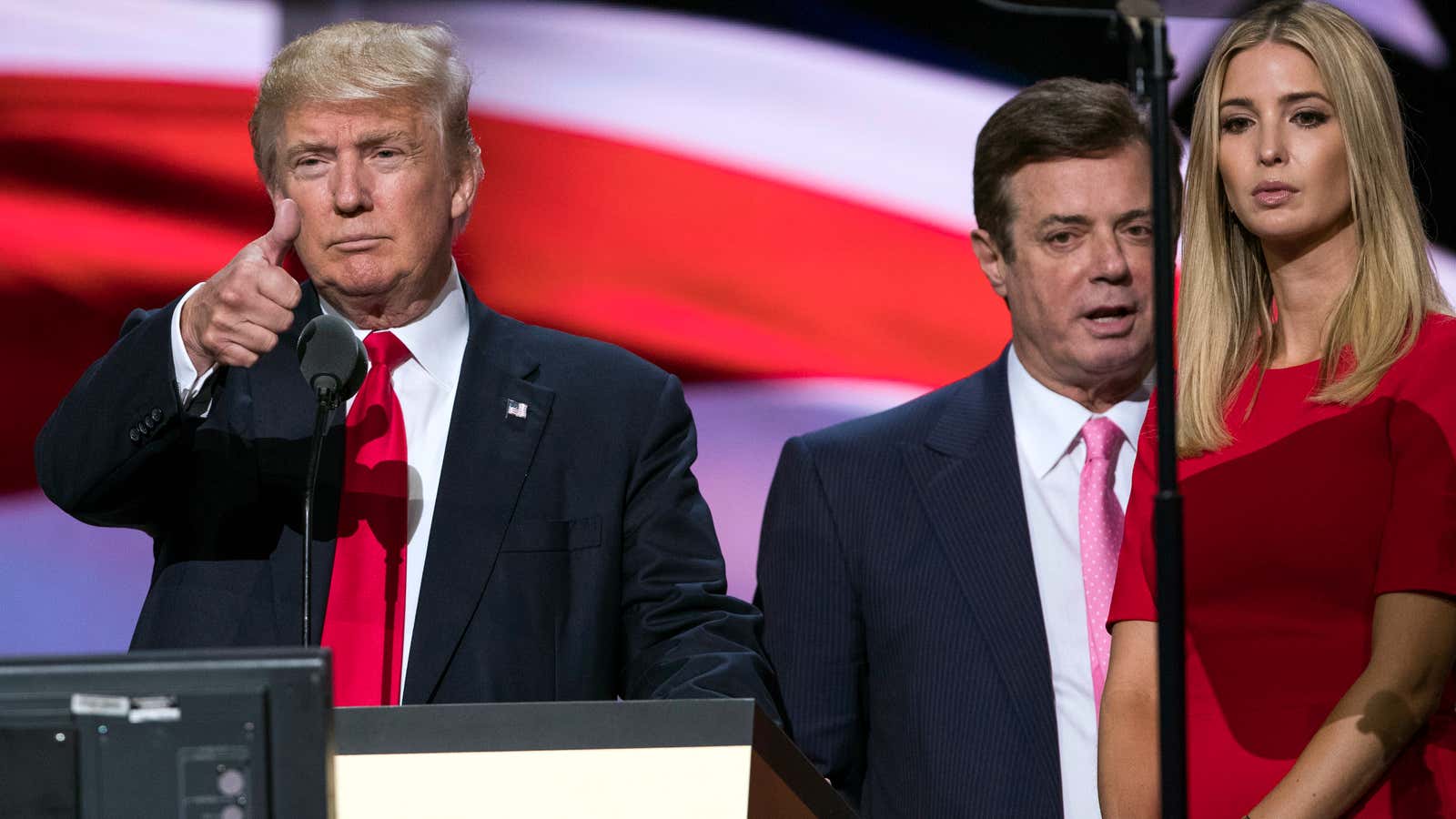US president Donald Trump’s campaign chairman was indicted for tax fraud, two days before the Republican party plans to roll out more details on its push to cut taxes. Speaker of the House Paul Ryan has insisted the charges won’t derail his push for an accomplishment to take into next year’s elections, but maybe that’s because, as he says, he hasn’t read the indictment. Besides distracting key figures in the White House and weakening Trump’s political clout, the charges against Manafort matter because they underscore who, in the Republican plan, shoulders the tax burden—and who doesn’t.
This is a bad look.
The major political challenge to passing the big tax cut Ryan envisions is that it will disproportionately benefit the wealthy. Trump, a self-proclaimed billionaire who refuses to make his tax returns public, is already a tough salesman for this bill. He has also appointed a former Ernst & Young official whose tenure there was tarred by a $2 billion tax-evasion scandal not just to run tax policy but now to actually lead the IRS. Manafort’s indictment—for laundering $18 million into the US through offshore shell companies and spending it on a luxury lifestyle—returns these questions to the fore. Why exactly are all these shady, wealthy men trying to pass a large tax cut for themselves? It’s going to make it much harder to pretend this is about the middle class.
There are policy problems.
Under the Republican plan, the US aims to stop taxing foreign-earned income. This could have a big impact on shell company schemes like the one that Manafort used to move his money into the United States, to the point of making transactions like his legal, because you can’t evade taxes on untaxed money. (It won’t help the part about working as a foreign lobbyist in the US and not disclosing it, though.)
Liberal tax analysts are already fretting that the move will create an incentive for corporations to move more jobs and capital overseas, preferring instead to lower the international tax rate, and not abolish it entirely. If this bill can be labeled by opponents as the “Paul Manafort Offshore Tax Act,” that won’t help it pass, so Republicans will face even more scrutiny as to how they deal with offshore finance.
Maybe we’ll get serious about tax fraud.
The bulk of the money-laundering charges made against Manafort and his colleague, Rick Gates, are tied to events that occurred well before the presidential campaign; two of the properties Manafort purchased with shell companies were bought in 2012, and charges for his failure to report foreign income are based on activities between 2008 and 2014. It was only in 2016 that the US Treasury started monitoring purchases of real estate by anonymous shell companies, and then only in a few cities. Financial transparency organizations have railed against the lack of enforcement against these kinds of financial crimes for years, but action to loosen bank secrecy rules or give investigators more tools to combat fraud has been slow.
It took a controversial presidential election and a Russian propaganda to make us care about these crimes. It’s hard not to imagine what the world might look like now if Manafort had been indicted in 2015, not 2017.
